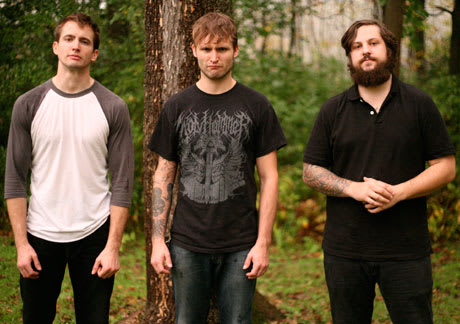More than ever, in 2011 established acts broke free of their genre conventions, reinventing themselves with new and more complex musical identities. Previously unknown groups exploded onto the scene with releases that were as dynamic and exciting as they were strange and unidentifiable. Aggressive bands combined aspects of various genres in new and novel ways, creating musical hybrids and chimeras, or, alternatively, rejecting genre boundaries all together, instead reaching towards the unclassifiable. To discuss aggressive music in 2011 was to invent a completely new critical vocabulary.
Tour line-ups were more open and experimental, such as the highlight of Enslaved (progressive Viking metal) touring with Alcest (dreamy French black metal) and Junius (heavy indie rock). Audiences are growing increasingly flexible and are encouraged to be interested in new, novel combinations.
In years past, hybridization came in the form of 1:1 ratio blends (blackened thrash metal, symphonic death). This year, bands juxtaposed elements from a variety of genres, twisting and recombining those elements into completely new shapes. Flourishing's challenging record The Sum of All Fossils is a perfect example, as is Hammers of Misfortune's 17th Street.
Difficult music was celebrated. More than ever, listeners embraced music that provided a challenging listening experience that was ultimately worthwhile. Our top album this year, KEN Mode's (pictured) Venerable, fits this description perfectly, as does Today Is The Day's Pain Is A Warning.
Even bands that define themselves by a specific genre defied expectations. While still adhering to the convention of grindcore in their brutal intensity and song construction, Fuck the Facts redefined what was possible within that genre with Die Miserable, an album as subtle, complex and sophisticated as it was intense.
Bands that work in genres with notoriously rigid constraints, like black metal, reached out to the experimental and avant-garde. Absu released the brilliant Abzu, and French black metal innovators Blut Aus Nord released two game-changing albums in 777 Sect(s) and 777 The Desanctification. Both borrow from other genres, such as shoegaze and atmospheric metal, while simultaneously defying the conventions of their primary genre.
Unsuccessful innovative albums this year (Lou Reed and Metallica's Lulu or Morbid Angel's Illud Divinum Insanus) occurred when genres were mixed clumsily or incompletely, and when attempts at hybridization went awry. These albums attempted to combine disparate elements, such as industrial with death metal, but did so without fully understanding or appreciating all their influences. The results were albums that were crudely Frankensteined together, so that the combinations became weaknesses instead of strengths.
Tour line-ups were more open and experimental, such as the highlight of Enslaved (progressive Viking metal) touring with Alcest (dreamy French black metal) and Junius (heavy indie rock). Audiences are growing increasingly flexible and are encouraged to be interested in new, novel combinations.
In years past, hybridization came in the form of 1:1 ratio blends (blackened thrash metal, symphonic death). This year, bands juxtaposed elements from a variety of genres, twisting and recombining those elements into completely new shapes. Flourishing's challenging record The Sum of All Fossils is a perfect example, as is Hammers of Misfortune's 17th Street.
Difficult music was celebrated. More than ever, listeners embraced music that provided a challenging listening experience that was ultimately worthwhile. Our top album this year, KEN Mode's (pictured) Venerable, fits this description perfectly, as does Today Is The Day's Pain Is A Warning.
Even bands that define themselves by a specific genre defied expectations. While still adhering to the convention of grindcore in their brutal intensity and song construction, Fuck the Facts redefined what was possible within that genre with Die Miserable, an album as subtle, complex and sophisticated as it was intense.
Bands that work in genres with notoriously rigid constraints, like black metal, reached out to the experimental and avant-garde. Absu released the brilliant Abzu, and French black metal innovators Blut Aus Nord released two game-changing albums in 777 Sect(s) and 777 The Desanctification. Both borrow from other genres, such as shoegaze and atmospheric metal, while simultaneously defying the conventions of their primary genre.
Unsuccessful innovative albums this year (Lou Reed and Metallica's Lulu or Morbid Angel's Illud Divinum Insanus) occurred when genres were mixed clumsily or incompletely, and when attempts at hybridization went awry. These albums attempted to combine disparate elements, such as industrial with death metal, but did so without fully understanding or appreciating all their influences. The results were albums that were crudely Frankensteined together, so that the combinations became weaknesses instead of strengths.
